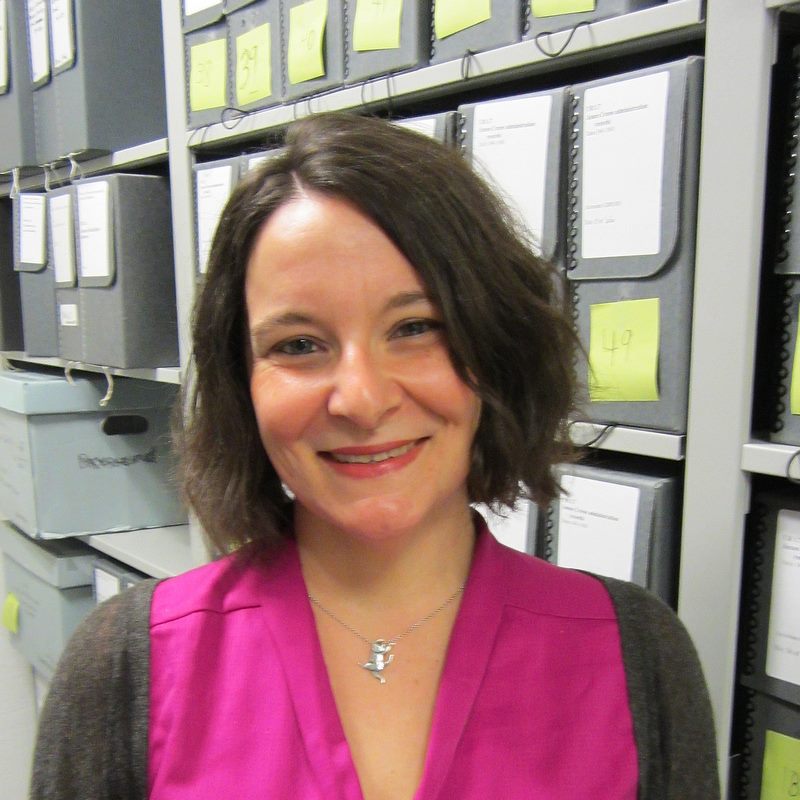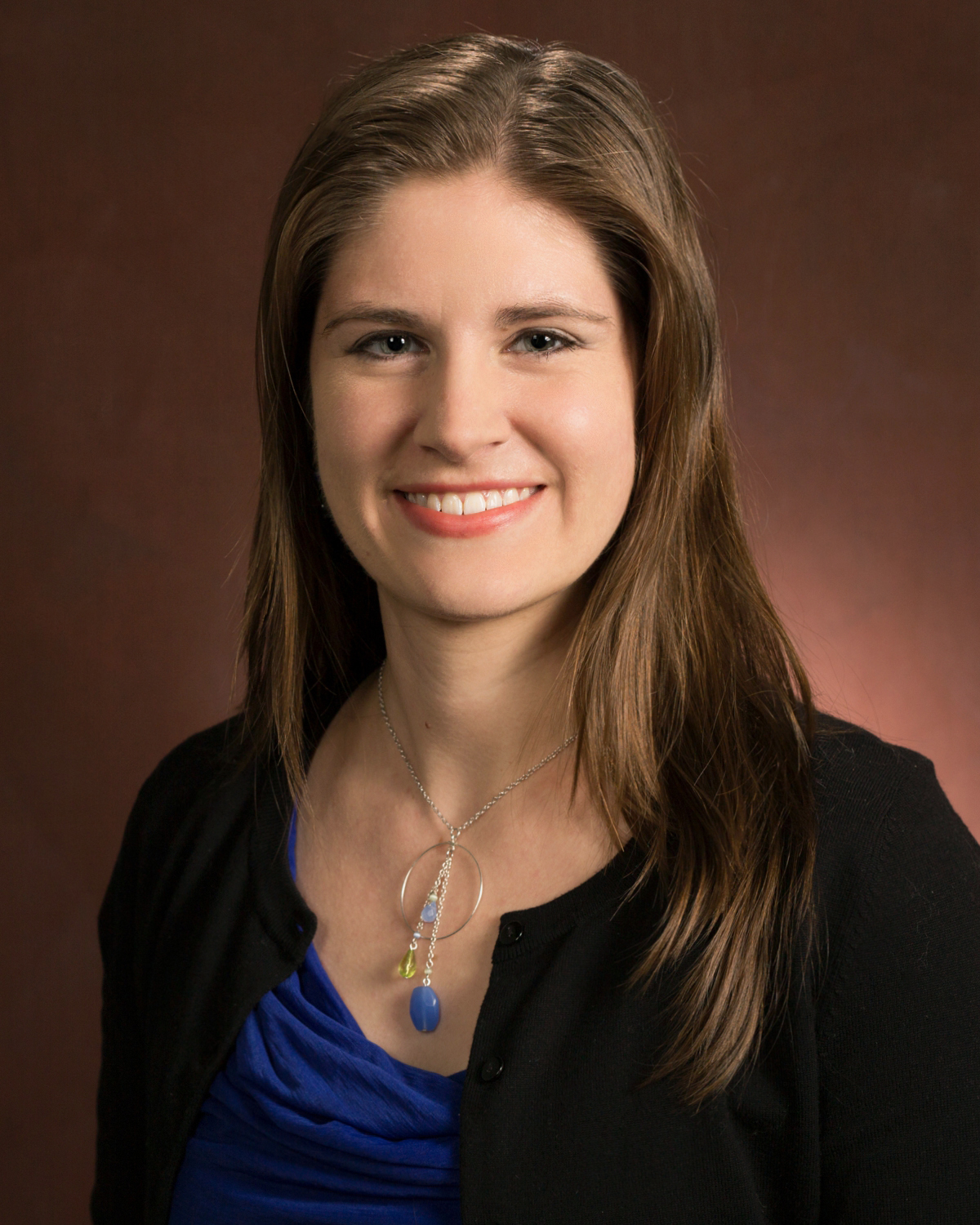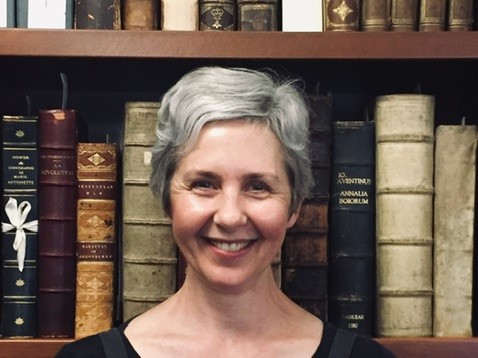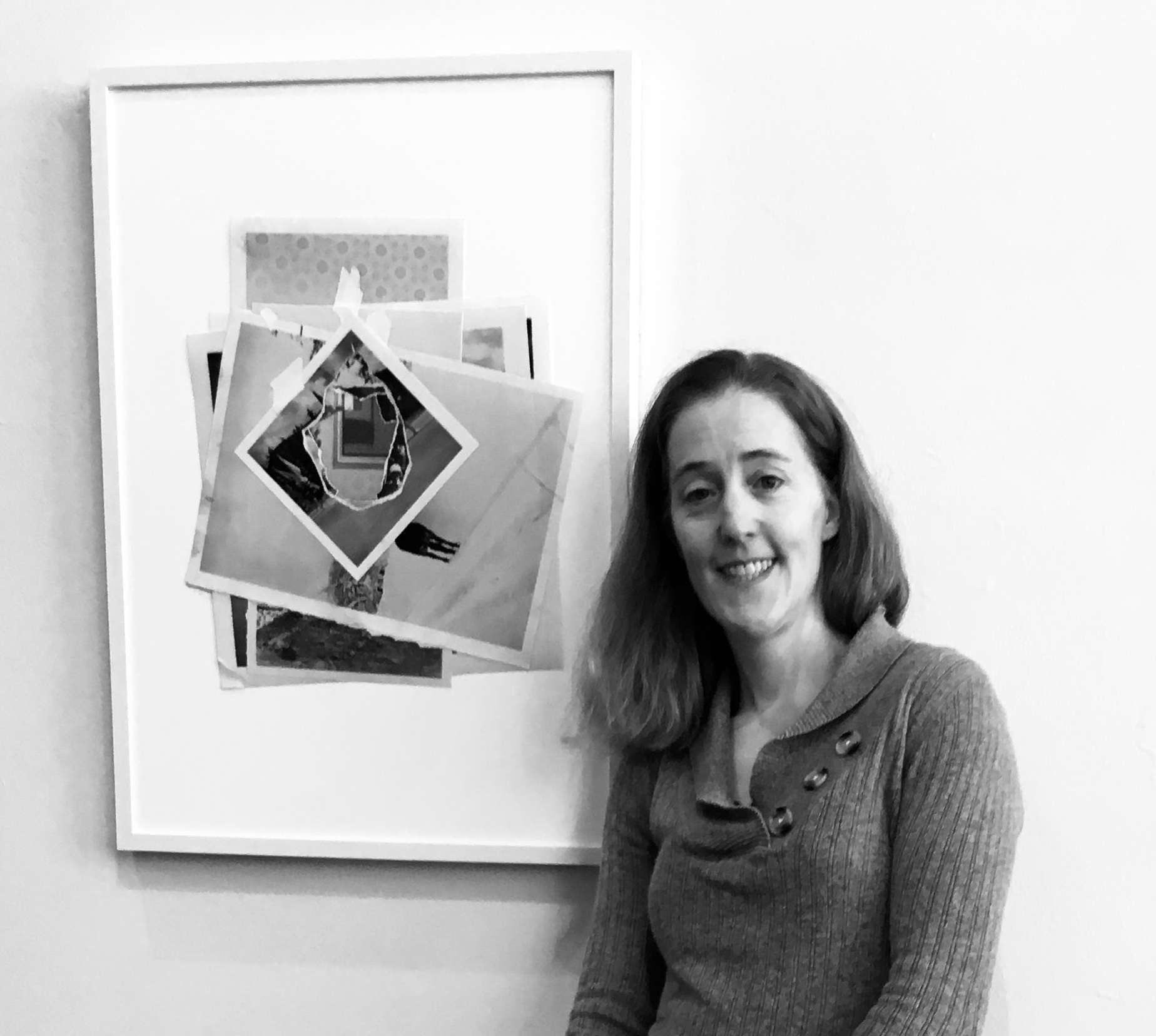- About Archives
- About SAA
- Careers
- Education
- Publications
- Advocacy
- Membership

Alexis Antracoli is Interim Assistant University Librarian for Rare Books and Special Collections at Princeton University Library. Previously she worked at Drexel University Libraries and the University of Michigan Bentley Historical Library. She has published on web archiving, inclusive description practices, and the acquisition and preservation of born-digital audiovisual content. Alexis is active in the Society of American Archivists, where she serves as Chair of the Web Archiving Section and on the Finance Committee. She holds an M.S.I. in Archives and Records Management from the University of Michigan, a Ph.D. in American History from Brandeis University, and a B.A. in History from Boston College.
At its heart, appraisal is about who matters to both archivists and to society and is thus worthy of representation in the archive. The answer to this question matters to archivists because, as professionals tasked with documenting society, the decisions we make about what to acquire shape the stories that society can tell about itself. Our responsibility in appraisal and acquisitions means that what and who we decide to document has a lasting impact on what questions researchers will be able to answer and whose stories future generations will be able to tell.
I would want to make two major contributions to the section. The first would be to build on the current success of the blog by introducing regular calls for contributions on specific themes related to acquisitions and appraisal and to explore the possibility of creating a monthly news round-up on appraisal and acquisition topics to be posted the blog and listserv. Secondly, I would like to implement education offerings, such as webinars, based on member needs and interests, to be determined through a survey. The idea would be to give members of the section with a range of experience levels the opportunity to learn from each other about current developments in archival acquisitions and appraisal as well as to invite guests to speak to us on relevant topics.

Matt Francis received a MA in Public History from Wright State University in 2008 and is currently the Archivist at Ohio Northern University (ONU). Before starting at ONU he worked as the Associate Head of the Special Collections Library at Penn State University, College Archivist at SUNY Potsdam, and a processing archivist at the University of Wyoming’s American Heritage Center. He currently serves on the SAA Mentoring Subcommittee and serves as the Chair of the Society of Ohio Archivists Membership Committee, in addition to recently serving on the 2018 SAA Annual Meeting Program Committee. Matt was also a member of the 2014 cohort for the Archives Leadership Institute.
Acquisitions and appraisal work matters to archivists because they are foundational functions that intersect and support many other core functions that make up our ongoing work. More specifically, effective acquisitions and appraisal work allows for archivists to efficiently manage our finite collection management resources, helps support making collections accessible for public use, identify preservation concerns and challenges, serve as a basis for descriptive decision making, and ultimately helps inform prioritization for future work. Additionally, in addition to serving as a foundation for important archival functions, acquisitions and appraisal work is directly tied to many of the core values that underpin our work as individuals and as a profession. This includes allowing archivists to support accountability of public leaders and organizations; working with, and learning from, diverse communities as we aim to develop collections within and outside of our institutions that serve all members of our society, especially those that have been historically marginalized by archives; and presents an opportunity for archivists to challenge ourselves and our institutions to steward collections in an environmentally sustainable way.
For as long as I have been a member of the Acquisitions and Appraisal Section, I have appreciated how the section has provided important resources and opportunities for discussion for its members and the larger archival profession. As someone who would be new to the leadership team for the section, my two primary interests would be learn as much as I can about current projects from other team members along with what I can do to support their ongoing work, and to take steps to receive membership feedback on what projects they would view as potentially high value work for the section. By taking this approach it is my hope that I could continue to build on the positive momentum that is already in place during year one, and then we could use the received member feedback to set an agenda for our second year while hopefully creating rewarding service opportunities for interested section members.
Kira has been the Reference Archivist for the City of Vancouver Archives in Vancouver, B.C. since 2017. Prior to this role she was an Archives Assistant at the United Church of Canada Archives in Toronto where she worked since completing her Master’s degree at the University of Toronto’s iSchool in 2015. Kira started out as the Social Media Intern for the Acquisitions & Appraisal (A&A) Section in 2016 and was fortunate to be able to continue on with the Section as an elected Steering Committee member. During this time she has primarily been involved with the A&A Outreach Subcommittee on tasks such as updating the Section’s microsite to include a Members’ Welcome page to inform membership on current Section projects, soliciting and creating content for the blog, and moderating Twitter Chats. She has also served as Key Contact for Western Canada (2016-2019).
Appraisal is an integral component to archival practice as archivists determine record value and decision making around collections management that shape our documentary heritage. Applying subject knowledge, archival training, and critical thinking when making appraisal decisions compose a valuable skill set that can facilitate ongoing professional development. At the same time, being able to communicate these practices and/or institutional policies is also important to building relationships with donors as well as conveying the role of archivists to a broader audience.
The A&A Section should work to create meaningful dialogue within the archival community, whether through online platforms, formal reports, or at the Annual Meeting. To accomplish these tasks, A&A leadership can strategize project goals over the course of the term and incorporate member engagement and collaboration with other Section groups to generate new exchanges of professional learning. My time spent on the Steering Committee has allowed me to work alongside with wonderful team members and I would look forward to a new energetic term ahead. My role with Section leadership has largely focused on outreach initiatives to engage Section membership and provides me with familiarity towards approaching Section activities, including what methods worked better than others. Applying this background, I would assist in determining new goals of Section leadership for the year (and beyond) and organizing and carrying out the logistical needs of projects.

Brooke L. Clement joined the Barack Obama Presidential Library in September 2016 and became the Deputy Director in May 2018. In this time, Ms. Clement has overseen the day-to-day operations of the Library, as well as supervised the administrative, archival, and artifact staffs, and led multiple working groups focused on the new presidential library model. Ms. Clement began her career with the National Archives and Records Administration in 2004 as an archives technician at the Gerald R. Ford Presidential Library in Ann Arbor, Michigan. There Ms. Clement processed records, ran the research room, developed exhibits, and coordinated the Gerald R. Ford Scholar Award in Honor of Robert M. Teeter. From 2006 to 2008, Ms. Clement worked at the George Bush Presidential Library and Museum in College Station, Texas, as an archivist. There she assisted with the redesign of the core exhibit in 2007 and co-presented at the 2008 Society of American Archivists regarding her work on testing a prototype for processing electronic records. Prior to working at the Obama Presidential Library, Ms. Clement worked at the George W. Bush Presidential Library as an archivist and supervisory archivist where she supervised the electronic records and unclassified records functions, including notification of records as administered by the Presidential Records Act.
Ms. Clement received an M.A. in American Studies from Columbia University in 2002, and a B.A. in History and American Culture from the University of Michigan in 2000.
Acquisitions and appraisal is vitally important to the mission of any archival program. Assigning value to a body of records prior to potential acquisition ensures that the archival program need only acquire records that are in support of its mission. Without this piece, an archival program may intake materials that bear no relevance to the overall holdings of an archive, and creating additional work for staff down the road in reappraisal and, possibly, deaccessioning efforts. Being conscientious of this while growing an institution’s archive can be an art. We are making appraisal and acquisition decisions in the here-and-now that affect both the current and future archival staffs of our institution (just as we are affected by those decisions made in these areas by previous archival staffs).
The A&A Section Steering Committee and its subcommittees are a valuable component of SAA. In the future, I would like to see the Best Practices Subcommittee add “practical resources” directly to the A&A webpage (https://www2.archivists.org/groups/acquisitions-appraisal-section), where archivists and the general public can easily access guides, templates, and the like.

Lauren Gaines has been the manager, corporate archivist, and historian for Thrivent Financial, a membership-based financial services organization located in the Midwest, for 7 years. She earned her BA in English with a minor in Medieval Studies from St. Olaf College in Northfield, MN, and earned her MA-History and MLIS from the University of Wisconsin – Milwaukee. She is also a Certified Archivist and a Digital Archives Specialist. She currently serves as the co-chair of the Southeastern Wisconsin Archives Group and served on the Program Committee for the 2019 MAC meeting in Detroit. She has frequently presented on her work to the Southeastern Wisconsin Archives Group and presented at the joint meeting of the Acquisitions and Appraisal and Records Management sections at SAA in 2018. In her spare time, she travels, hikes, and trains her three Welsh Springer Spaniels for dog sports.
Acquisitions and Appraisal set the stage for all the other work an archivist does. The task of selecting the material that makes it into the archives defines the collections, the processing plan, the backlog, and the reference and outreach we do. It is also some of the most subjective and difficult work the archivist must undertake. What do we keep, and what do we allow to fall by the wayside? When do we reconsider whether a collection belongs in the archives? Clear, consistent policy helps, as does appropriate documentation of past appraisal decisions. However, appraisal is also one of the most difficult areas of archival work to teach, is often highly institution-specific, and appraisal decisions have long-lasting implications for archival programs.
The Acquisitions and Appraisal Section has already done excellent work with the collection development survey and the Assigning Value blog. More work needs to be done to establish and promote best practices in acquisitions and appraisal. When I first became the head archivist at Thrivent, appraisal was the area that scared me the most. I had very little experience with selecting records beyond weeding whatever material I had been processing. We had no collection development policy, no accession records, and no other documentation for any prior appraisal decisions. There is little visibility into why those decisions had been made, which makes it difficult to defend the archives program when we are questioned on things like the size of the backlog. Obviously, every institution, every archives, and every body of records is unique, but there are core practices that can help prevent other archivists from facing similar situations. I believe the Acquisitions and Appraisal section can help centralize and promulgate these practices, so that more archivists from a wide range of institutions can implement them and better document their own institutional knowledge.

Suzanne Noruschat is Southern California Studies Specialist in Special Collections at the University of Southern California, where she has overseen the Regional History Collection since 2017. Previously, she was the architectural records archivist in Manuscripts and Archives at Yale University Library and processed design records at the Getty Research Institute in Los Angeles. She received the MLIS from the University of California Los Angeles in 2011 and the PhD in Art History, with a specialization in modern architecture, from Emory University in 2005. She has held leadership positions with SAA’s Design Records Section and is on the Program Committee for the 2019 SAA Annual Meeting.
Acquisitions and appraisal are central to the work we do as archivists. Even if not directly involved with acquisitions and appraisal, our work as archivists is affected by selection decisions, as is the historical record we preserve. Acquisitions and appraisal impact and set the stage for other critical functions archivists perform—from processing to collection management to instruction and reference services —and so in practical terms it matters that we make selection decisions that facilitate our operations and serve users’ needs and interests. Acquisitions and appraisal also matter, I believe, because they can help us to realize our commitment to equity, diversity, and social justice. A conscious approach to how and what we collect, in other words, is critical if our goal is to foster substantive and meaningful change that addresses bias and inequity. An important function of the Acquisitions and Appraisals Section is that it offers a forum for discussing and reflecting upon the challenges and opportunities inherent in archival selection, with its myriad approaches, encouraging us to think more deeply and critically about this significant aspect of our work.
While I am interested in working with the A&A Section members on adding to and expanding upon the excellent resources the group has already made available—the appraisal bibliography, the collection development policy survey conducted by the Best Practices Subcommittee—I am especially interested in contributing to outreach efforts by sharing information about some of the innovative ways in which archivists are approaching acquisition and appraisal in a variety of contexts. Several institutions, for instance, are in the process of developing, or have developed, post-custodial arrangements with community archives, while others (such as Yale University Library’s Manuscripts and Archives, where I worked) have implemented an appraisal model that engages donors in the records selection process. I would like to share these experiences through articles or interviews on the section’s blog so that others can learn from these arrangements, broaden their understanding of acquisition and appraisal strategies, and perhaps consider applying similar models. Part of this effort would involve outreach to other SAA sections to solicit case studies and ensure that interested audiences are aware of the postings.

Jamie Seemiller is the Acquisitions Archivist at the Denver Public Library (DPL) Western History and Genealogy Department, where she works with donors, processes collections and manages two acquisition committees. At DPL, she was also Program Administrator for the IMLS Creating Communities grant and a Cataloger. Jamie is a Certified Archivist and holds a DAS certificate. She taught Archives Appraisal at the University of Denver. For the past nine years, she has served on the board of the Society of Rocky Mountain Archivists as Archivist, Vice President, President and Past President. For SAA, she has served as the Chair for the PLASC Section (2012-2013), Program Committee Atlanta (2016), SAA Mentor and has presented at several annual conferences. She received her MLIS from the University of Denver (2007) and a B.A. in Cinema from Southern Methodist University (1995). Prior to working in archives, she worked in educational television for 10 years.
Archivists today are active participants in shaping history. Acquisitions and appraisal are the heart of every archive to ensure that we preserve and document our community's diverse past and present. I often think about F. Gerald Ham’s 1974 SAA Presidential Speech where he states that it’s the archivist’s job to make sure that we document “a representative record of the human experience” and asks “But why must we do it so badly?” I aspire to not do it so badly and encourage archivists to take a close look at how traditional acquisitions and appraisal models need to be adjusted for the current profession. Archivists need to take an active role in controlling what comes in the door because good acquisition and appraisal decisions can lead to higher quality collections, reduced staff time for accessioning and better collection development. At DPL, we have revamped workflows and procedures, revised donor forms, increased donor participation and have learned how to say “No.” We also ask donors to help in the expense of processing, digitizing and/or conservation prior to donation to make sure that we can properly care for and provide access to the materials. In the end, we all want to make sure that our archive is the right home for a collection. It is important that archivists take some extra care with acquisitions and appraisal decisions in order to not do it so badly at least most of the time.
I would like the section to open up conversations about how traditional methods of appraisal and acquisitions need to be transformed to meet the needs of archivists and donors. The section has done an excellent job with the Assigning Value blog. It would be great to have a more informal way to connect with members and share ideas. I could directly contribute to help start these conversations on the listserv or schedule meet ups at the annual conference. Here are a few topics I have been thinking about lately that could serve as conversation starters:
I believe there is more as a profession that we can do to support each other and opening up the conversation about appraisal and acquisitions is one way this section can help to transform the way we do our jobs.